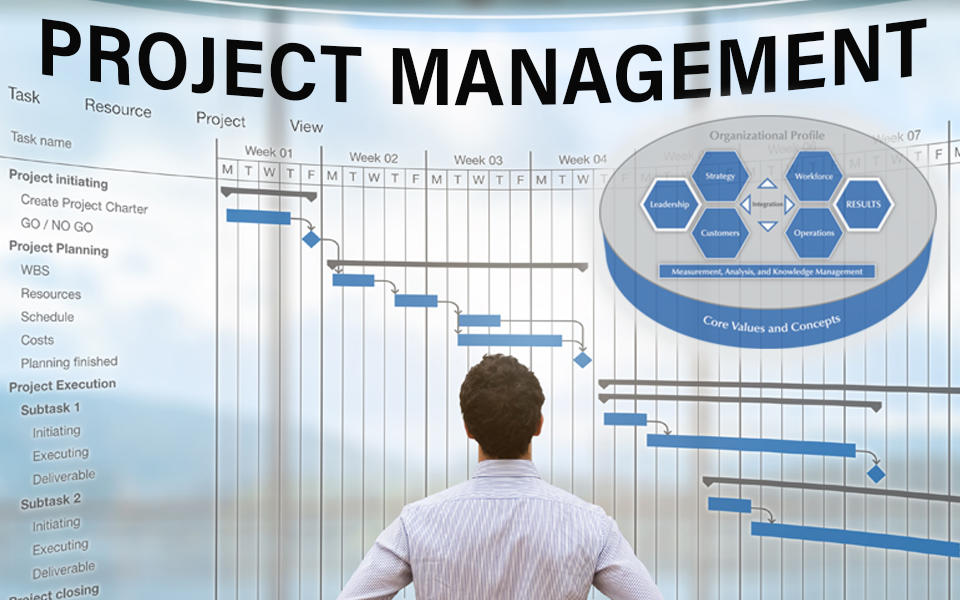Hello!
 Project management is at once an exciting and nerve-racking proposition. On the one hand, you are excited at the chance to really put your stamp on something. On the other hand, you know that the project dies or survives on the strength of your leadership.
Project management is at once an exciting and nerve-racking proposition. On the one hand, you are excited at the chance to really put your stamp on something. On the other hand, you know that the project dies or survives on the strength of your leadership.
It’s normal to feel a little anxious, but with the right strategy, you can nail the project. In this article, we take a look at how you can hone your project management skills regardless of what industry you work in.
Communication is Everything
One of your biggest and most important roles as a supervisor is to understand communication. You’re something of a middle-person. You need to be able to communicate with your higher-ups and the people that you are supervising.
A go-between who represents simultaneously three sets of interests. Those of your team members. Those of your employers, and those of the project itself. This is a difficult balance to strike but nailing it is key to doing a good job.
Learn How to Delegate
Chances are you came into a leadership position because you are a go-getter. The sort of person that likes to have their hands on every detail of a project. And while this attitude can serve as an effective way to get things done, it’s not always sustainable.
Your job now is to manage. You can’t do that effectively if you are always rolling up your sleeves to get your hands dirty. Learn how to delegate. You can do this effect once you
Know Your Team Member’s Strengths
 Everyone brings something slightly different to the table. Part of your job as a project manager is to figure out what that thing is, and use those strengths to the advantage of the project. Not only will this help improve the working process, but it will also make your team members feel seen and acknowledged.
Everyone brings something slightly different to the table. Part of your job as a project manager is to figure out what that thing is, and use those strengths to the advantage of the project. Not only will this help improve the working process, but it will also make your team members feel seen and acknowledged.
It’s nice to know that your manager understands your strengths. Figure out what your team is good at, and use that knowledge to everyone’s advantage.
Positive feedback is Invaluable
It’s easy to misunderstand the value of positive feedback. You’re a busy person. Your team members are busy. They know, don’t they, that you are happy with their work? If you weren’t happy with their work you would say something.
Exactly!
Well, that’s just the problem. If your team members only get feedback from you when you are unhappy with their performance it can put a strain on your relationship. They may even feel uncomfortable having conversations with you.
At the very least, they won’t feel like their work is being appreciated, because no one has ever provided any indication that it is.
Fortunately, the solution to this is simple. Have conversations! Acknowledge your team members when they do something good. Supervisor recognition is one of the strongest indicators of workplace satisfaction. The more appreciated your staff feels, the harder they will work and the longer they will stick around.
It’s an easy way to improve productivity and be a decent person at the same time.
Time Management
 Time management is a key component of getting a project turned in on time. Delays not only cost money but they lead to stress for your team members and the higher-ups. Guess who becomes the focal point of that stress?
Time management is a key component of getting a project turned in on time. Delays not only cost money but they lead to stress for your team members and the higher-ups. Guess who becomes the focal point of that stress?
A stranger?
Guess again. When there are delays, you’ll be the one on the chopping block.
Fortunately, many of the tips on this list help get projects turned in on time organically. Manage your time. Understand your strengths and weaknesses, and trust the process.
Team Building
Teambuilding is another consideration that is easy to disregard. You’re on a schedule, right? You can’t set time aside for things that don’t contribute to the finished product. After all, that’s what everyone is getting paid for.
Good team building has the potential to actively boost productivity. When people know and trust their coworkers, they work better. They feel happier. And they get more done in the same amount of time.
It doesn’t have to be lavish or at all time-consuming. Simply by including the occasional icebreaker in your meetings you can help people learn more about each other, and foster relationships in the process.
 It’s simple, it’s free, and it improves productivity. Added bonus? It can boost retention as well.
It’s simple, it’s free, and it improves productivity. Added bonus? It can boost retention as well.
Study after study shows that employees are more likely to stick around if they are friendly with their coworkers. In fact, many studies show that individuals self-report valuing office friendships more than they value compensation.
There are limits to that, of course, but the bottom line? If you can help build a friendly, familiar work environment you will keep people around for longer.
Thank you!
Join us on social media!
See you!






